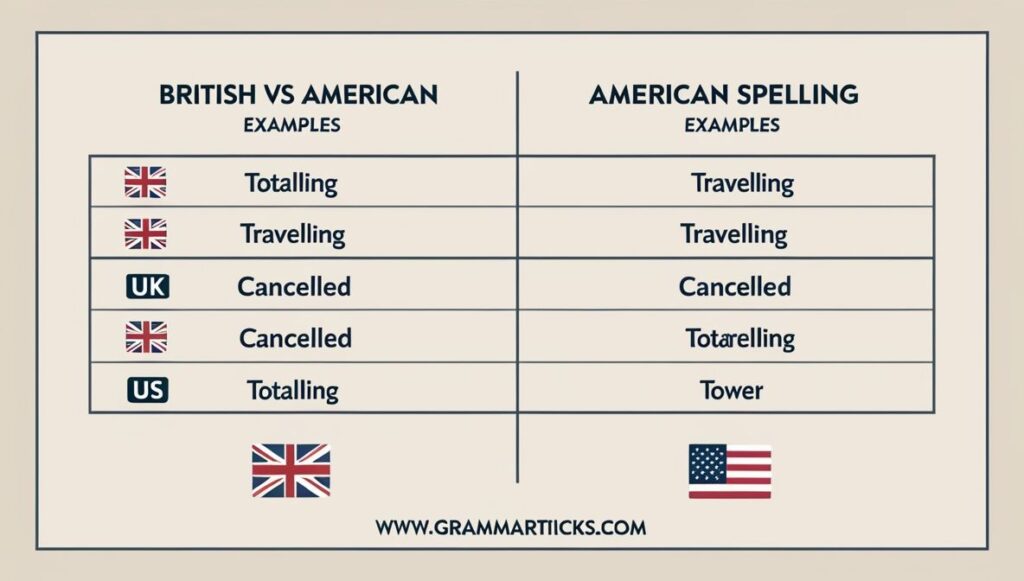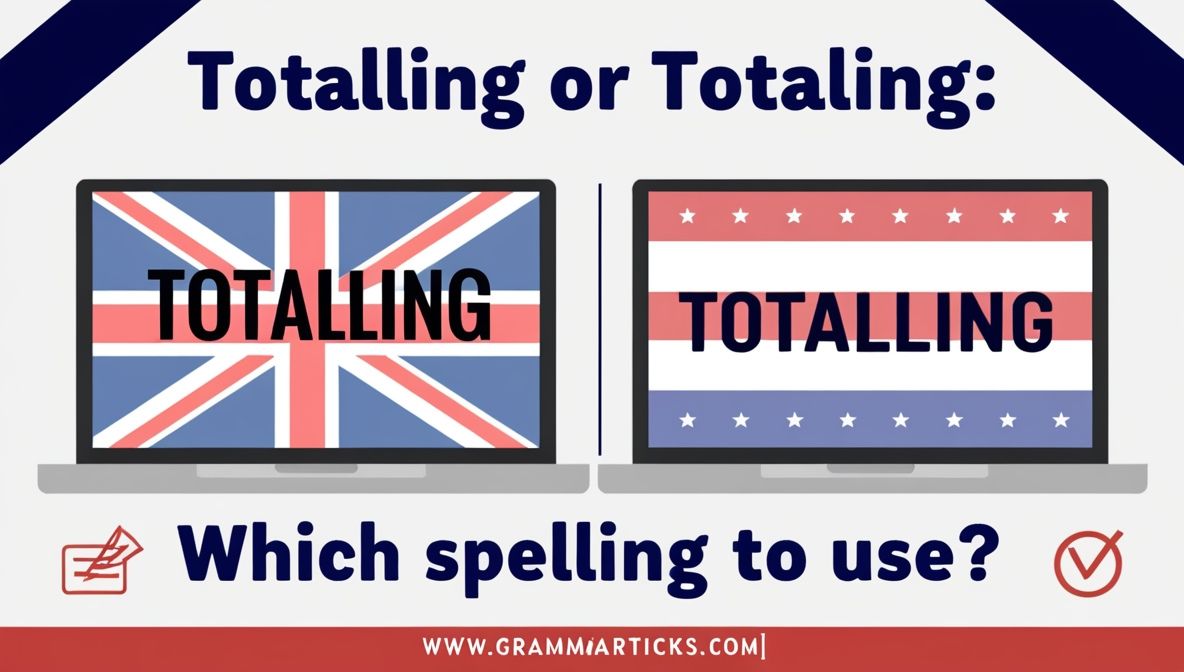Choosing between “Totalling or Totaling” might seem minor, but this small spelling change highlights a much larger debate between British English spelling and American English spelling. These kinds of spelling variations can confuse even experienced writers especially when switching between UK and US audiences. If you’ve ever questioned which form is right, you’re not alone.
This article breaks down the real difference, using clear examples and tips to help you avoid common mistakes. Whether you’re editing a report, writing content, or just trying to follow consistent English spelling conventions, this guide will settle the Totalling vs Totaling debate once and for all.
What Do Totalling and Totaling Mean?
Both words are the present participle of the verb “total,” meaning to add up or sum. The only difference lies in the spelling style used in various parts of the world.
Totalling vs Totaling – The Regional Rule
Totalling vs totaling comes down to geography. In the UK and other Commonwealth countries, doubling the “l” follows grammar rules for words ending in a vowel + “l.” Americans, however, use a simplified single “l” spelling.
Why Spelling Differences in English Arise
These spelling variations aren’t random. The US simplified many spellings in the 19th century thanks to reformers like Noah Webster. So while Brits write “totalling,” “travelling,” and “cancelled,” Americans shorten them to “totaling,” “traveling,” and “canceled.”
Scenario Examples of Totalling and Totaling
| Word | Region | Example |
| Totalling | British English | “The car repair costs, totalling £3,200, were covered by insurance.” |
| Totaling | American English | “The storm damage, totaling \$5,000, shocked the homeowners.” |
These examples show how each form appears naturally in everyday writing.
Tips to Overcome Confusion
- Set your document language to match your target audience US or UK.
- Use Grammarly or Microsoft Word’s proofing settings to flag regional inconsistencies.
- Stick to one form throughout your content style guide consistency matters.
- Remember this: British = totalling, American = totaling.
Synonyms and Alternatives
To avoid confusion, you can always use a simpler phrase. Try:
- Adding up
- Summing
- Coming to
- Reaching a total
These phrases work well in informal or conversational writing.
Comparing Totalling vs Totaling: Quick Table
| Variant | Language Used | Correct In | Example |
| Totalling | British English | UK, Australia, etc. | “She’s totalling the receipts.” |
| Totaling | American English | US, Philippines | “He’s totaling the invoice costs.” |
Totalling vs Totaling – Common Errors

Writers often mix UK and US spelling in one piece. For instance, writing “travelling” with “totaling” causes a stylistic clash. Other tricky pairs include:
| British English | American English |
| Totalling | Totaling |
| Cancelled | Canceled |
| Labelled | Labeled |
| Travelled | Traveled |
Stick to one regional style consistency builds credibility.
Totalling Meaning & Totaling Meaning in Context
Totalling and totaling mean the same thing: calculating or summing up. If you’re wondering about the totalling meaning, it’s the act of reaching a total amount regardless of spelling.
FAQs
Yes, just make sure it’s consistent with your region’s English.
Exactly. UK uses “totalling,” and US uses “totaling.”
Yes, the meaning doesn’t change just the spelling does.
Final Words
Both totalling and totaling are correct. The difference depends on where you live or who you’re writing for. Use totalling if you follow British English. Use totaling if you follow American English. That’s it simple.
So next time you wonder about Totalling or Totaling, just think about your audience. Stay consistent, and you won’t go wrong. It’s a small detail, but it makes your writing look clean and professional. Now you know which spelling to use and why it matters.

